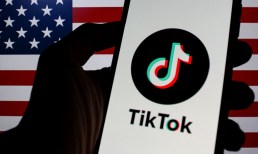The post-Brexit world has surely become one of many ups and downs, from big business leaving to foreign sales soaring — there’s never a dull moment in the Brexit fallout. In this week’s Brexit Tracker, General Motors makes its own big exit, PayPal delivers some hopeful U.K. sales data and France’s president throws in his two cents about what Brexit really means for the U.K.
Brexit Becomes GM’s Final Straw
General Motors has operated in Europe for nearly a century, but according to CNN Money, Brexit has caused the automaker to bow out of the region for good.
On Monday (Mar. 6) GM announced plans to sell the two European brands, Opel and Vauxhall, it has owned since the 1920s to French automaker PSA Group. While Brexit wasn’t the only problem facing GM in Europe, CEO Mary Barra and other executives did cite it as and the region’s “changing geopolitical landscape” as a driving force behind the sale.
“We expect geopolitical events will continue to impact commerce in the region, as we’re experiencing real time with the impact of Brexit,” GM President Dan Ammann said.
“We see risks in these markets that could outweigh these opportunities, making this the right time to divest the Opel-Vauxhall business,” he added.
Advertisement: Scroll to Continue
According to CNN Money, GM has lost $22.4 billion in Europe over the past 17 years, but the company maintains that if it wasn’t for Brexit, it actually would have been profitable last year for the first time since 1999.
The devaluation of the British pound compared to the Euro as a result of Brexit continues to impact car sales.
PayPal Sales Going Up
New data from PayPal revealed that small and medium-sized enterprises (SMEs) in Britain saw global PayPal sales rise by 10 percent year on year from January to June 2016, then by 34 percent year on year from July to December.
In the six months following the referendum result last year, international consumers purchased 13 percent more per transaction from U.K. SMEs.
PayPal said the boost was driven by a weak pound, which made products sold in the country cheaper for foreign buyers, Business Insider reported.
“When the pound dropped and the buying power of international shoppers increased, we expected to see a surge in online exports,” Mark Brant, managing director at PayPal U.K., explained.
“Of course, lower prices played a major part in boosting international sales, but there were many other contributing factors.”
The firms that benefited the most from the export boost, he noted, were those that catered online stores to fit the needs and expectations of foreign shoppers.
“The small businesses that were best placed to benefit from the influx of international shoppers were the ones who had already adapted their online stores — for example, by letting customers browse in their own language and pay in their own currency,” Brant added.
No More EU Perks
French president François Hollande made it clear what the U.K. can and cannot expect as a result of its decision to break away from the EU.
In a message to Britain, he warned that the nation must be prepared to forfeit all of the advantages that come with EU membership, adding, “That’s not possible; the U.K. will become an outsider to the European Union.”
“The U.K.’s problem is this: It had thought that in leaving Europe, it would tie up a strategic partnership with the U.S. But it now happens that the U.S. is closing itself off from the world. The U.K. has made a bad choice at a bad moment. I regret that,” he continued.
During the interview with The Guardian and other European newspapers, Hollande said the future of the EU post-Brexit may involve having a “multi-speed” Europe where countries are integrating at different levels, which was an option that was long resisted.
Though Hollande’s term as president is set to end at the beginning of May, he plans to spend the time he has left in office pushing France’s role in shaping the future course of the EU, noting that he will not “give in to despair” in reference to an EU crisis, The Guardian reported.
He confirmed that even post-Brexit, the opportunity will remain for the U.K. to have a link to any integrated European defense project.
“In my mind, the U.K., even outside the EU, should be associated with that,” he said.




